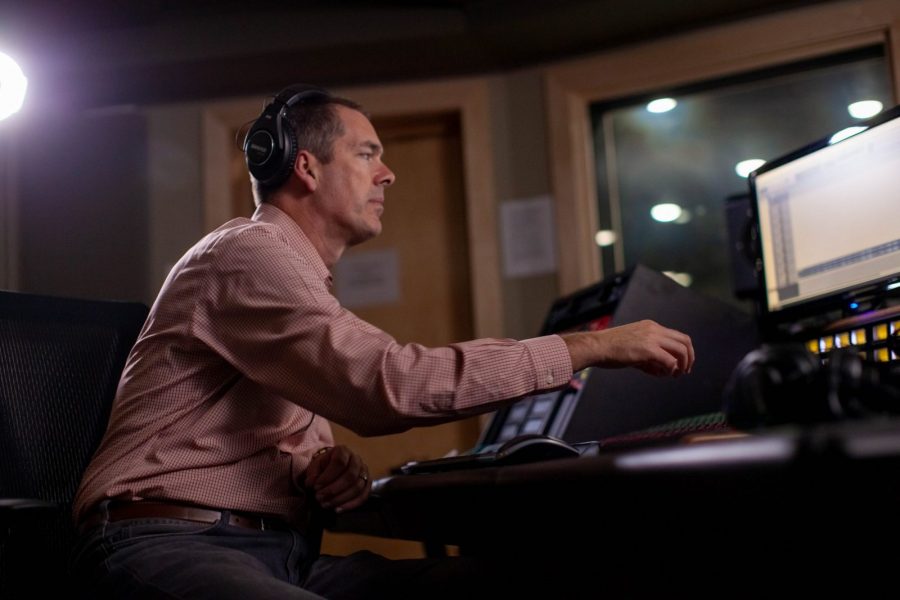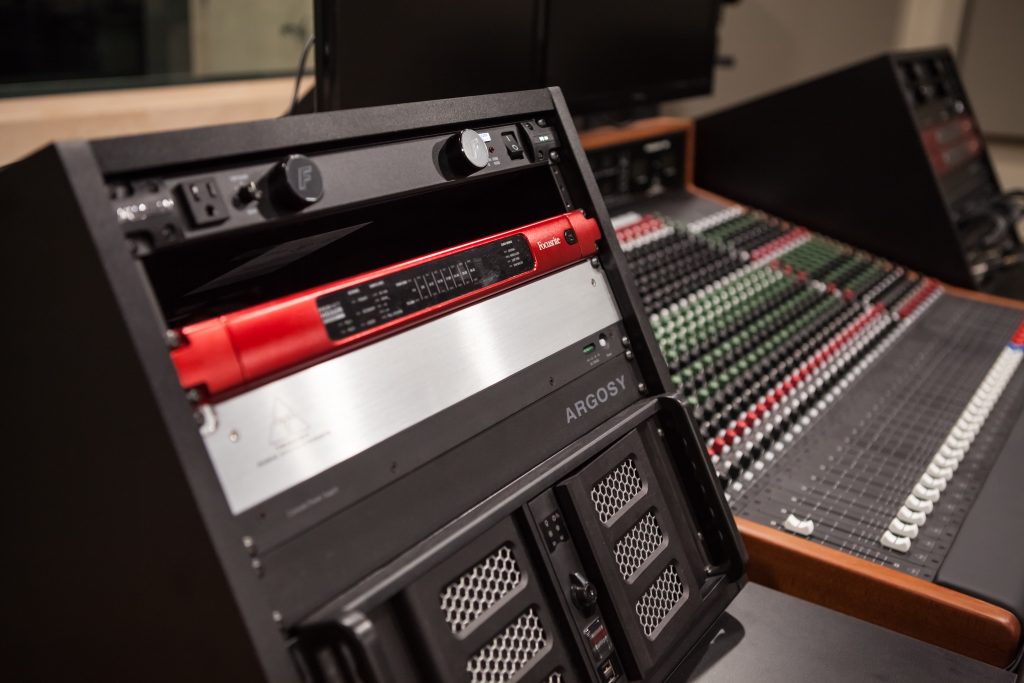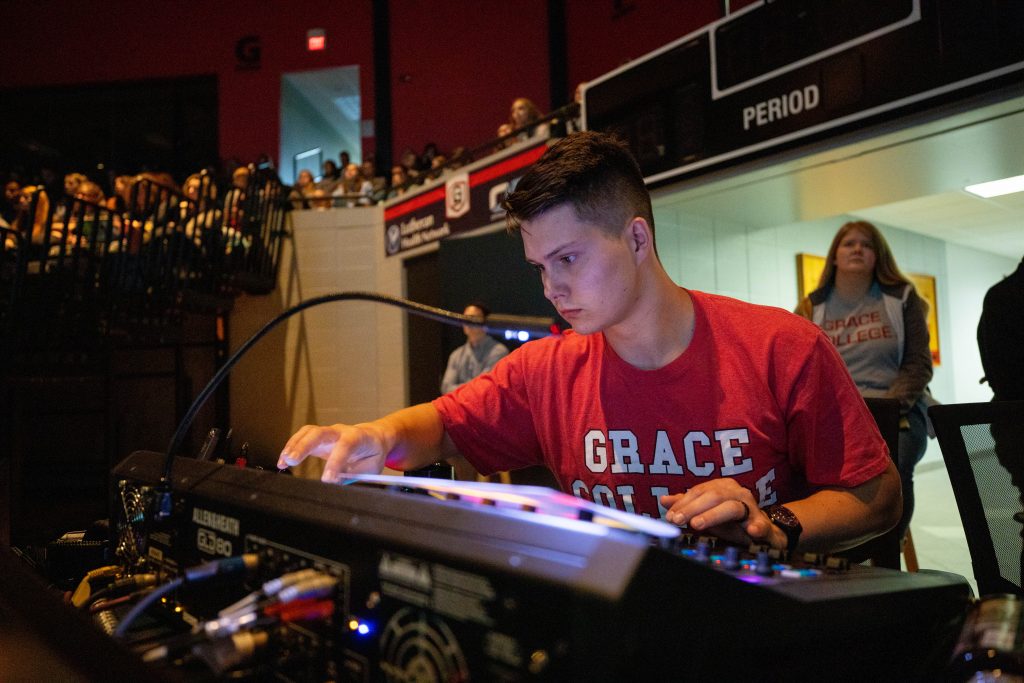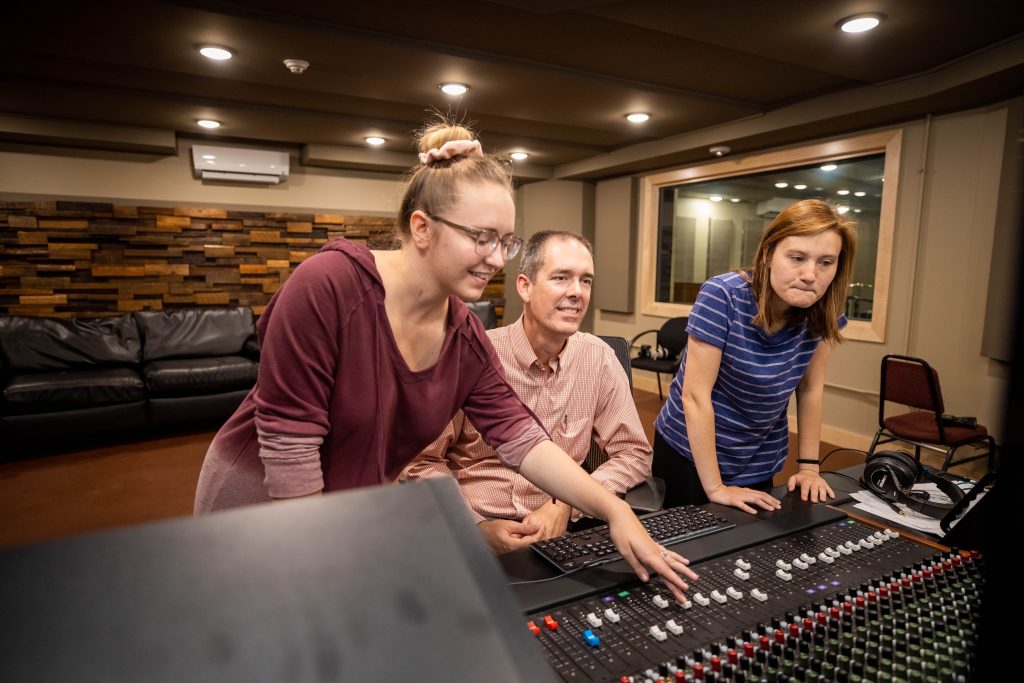What are things to look for in music production programs?
When you are looking at music production schools, you will have a variety of things to consider. It is important for you to get hands-on training in the field. That’s why we give our students the opportunity to apply their learning by being a part of our chapel team. Music production majors help with the sound system and videography.
Jalen Williams completed his undergraduate at Grace with a minor in music production and is now working as a graduate assistant as an audiovisual tech assistant for the chapel team.
“I have learned everything from how to work the soundboard (mixing) to stage setup and even a few things here and there about lighting and camera work. My favorite part has been working with the music groups who have come to do special events on campus like Kings Kaleidoscope,” he said.
It’s also important to scope out the space and equipment you’ll have access to. Learning how to use top-of-the-line gear will prepare you for top-notch opportunities. At Grace, you will get firsthand experience with our studio space, where you will work with a cutting-edge recording studio, a fully outfitted performance space, and a high-tech MIDI lab and classroom.
You can use instruments like classical guitars, steel-string acoustics, basses, and a keyboard, all from Sweetwater, the largest online retailer of pro audio equipment in the United States. We also have gear like mics, amps, and focal monitors to acquaint you with professional equipment you will use during your career in music production. Our studio provides everything you need to embrace the advancing world of technology in the music production space.
Outside of the classroom, many of our students find internships at local churches so they can apply their knowledge in a professional setting. They also have the opportunity to spend a semester in Nashville at the Contemporary Music Center through a program that teaches students how to create music and prepares them to work in the entertainment industry.







